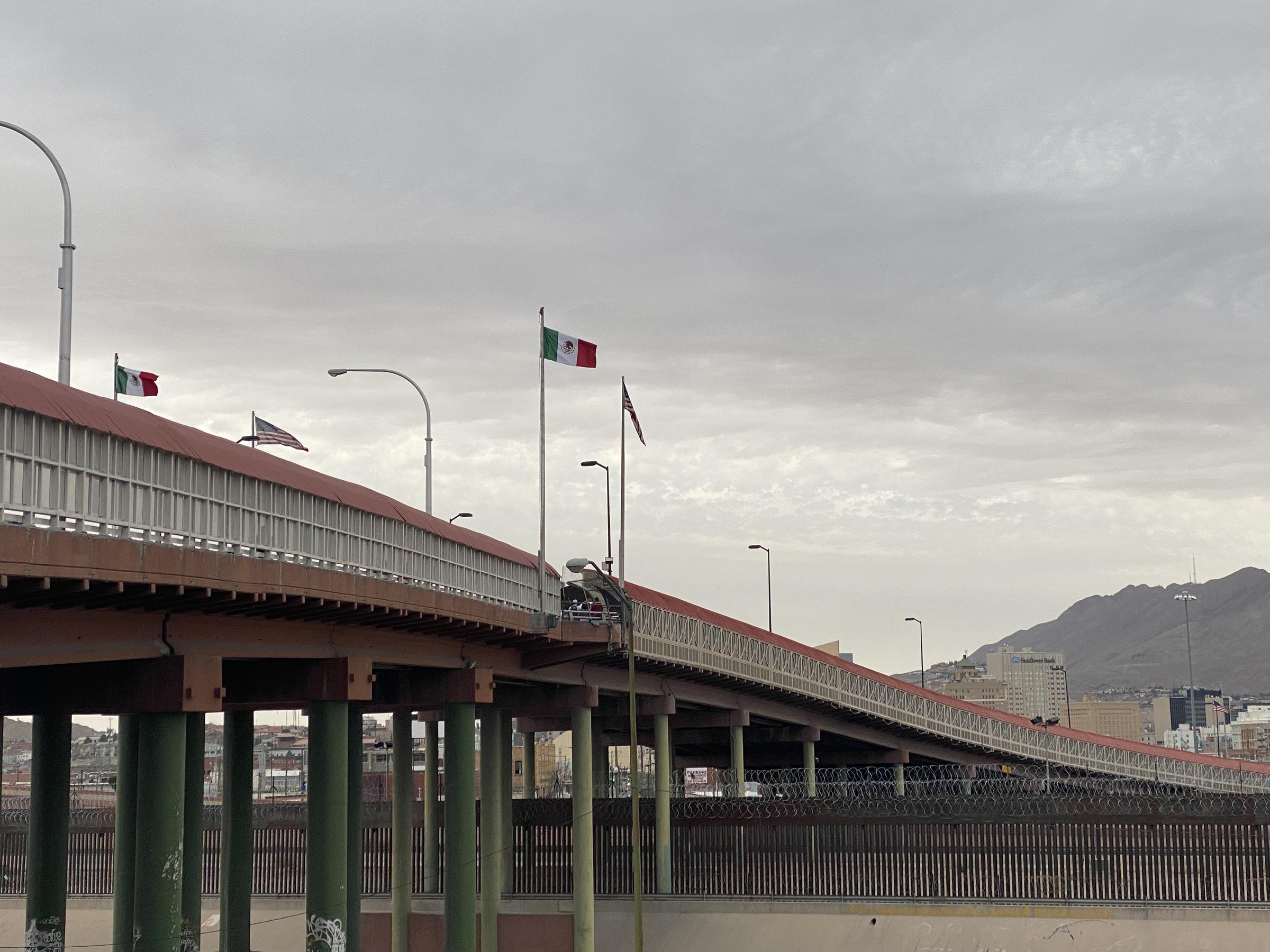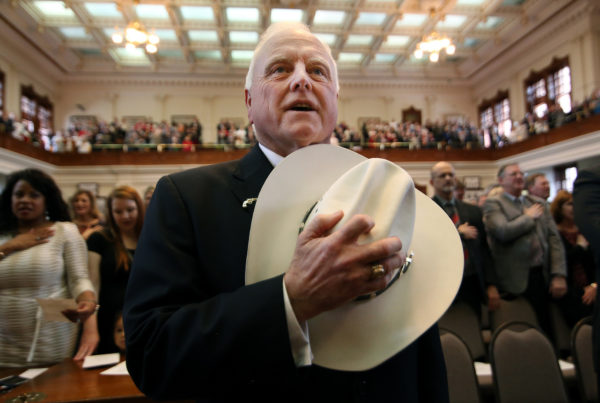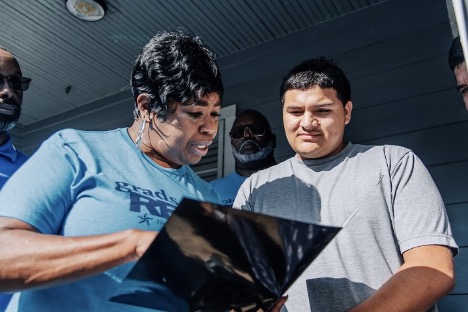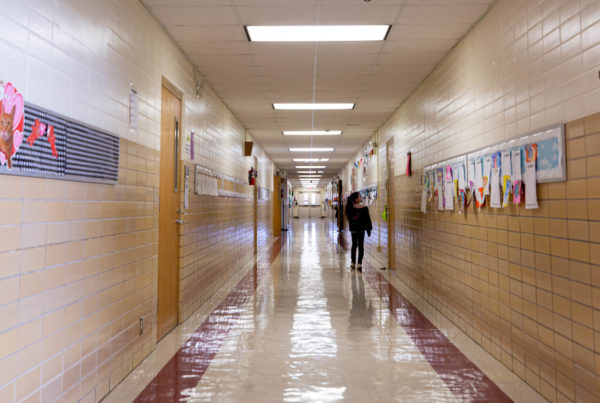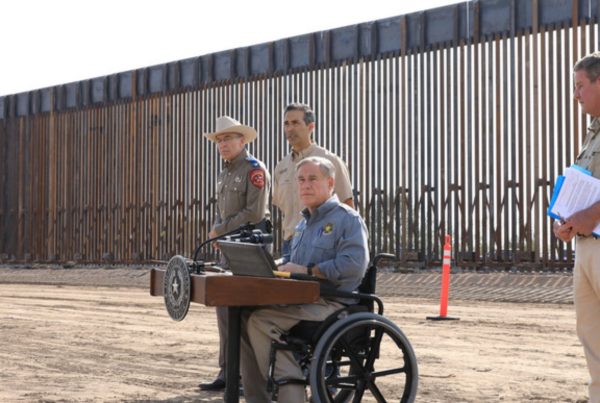Customs and Border Protection, or CBP, announced this week that a record number of migrants have been detained – more than 2 million this year. The head of CBP, Commissioner Chris Magnus, has been in El Paso this week, touring government facilities and meeting with local leaders trying to manage large numbers of migrants arriving, many from Venezuela.
KTEP El Paso’s Angela Kocherga spoke with Magnus, who said the ability to process large numbers of migrants seeking asylum has improved since last fall, when hundreds of Haitians camped under a bridge in Del Rio. Listen to the interview above or read the transcript below.
This transcript has been edited lightly for clarity:
Chris Magnus: We learned a lot of lessons from Del Rio and we’re doing things a lot better. And it’s not chaotic here. It’s organized, it’s thoughtful, it’s efficient. I’m very impressed.
Angela Kocherga: Give people a sense of what some of those lessons are, because everyone remembers the images of the people under that bridge. And here we are not seeing that situation.
Well, I think one of the lessons, first of all, has to be the ability to decompress migrants from one location to another. There are sectors along the border where they may be dealing with a much lower flow of migrants. And they have the capacity to do processing, even when, for example, an area like Del Rio might be over their capacity. Now we know and we have processes in place to get migrants from one location to another and also have them thoughtfully organized. So where we can repatriate these migrants there together for flights or to be buses to the right location.
This idea that there are open borders, how what would you say to people who constantly use that phrase
No, I find that phrase ‘open borders’ to be both frustrating and, frankly, a little offensive when you look at the work that’s being done by CBP personnel, not only here, but in other areas of the border as well. We’re using a lot of resources in a very smart way to address migrants who are coming across the border and who have a legal right to seek asylum. They need to be processed. They need to be vetted to make sure that we’re not allowing people into the country who would do us harm. We have a very sophisticated process for that. If we see people who have criminal histories and the like, they’re put in an entirely different pathway than those who have a legitimate asylum claim and have a right to pursue that. But I think this is complicated. But it is orderly. It is thoughtful. It is being done in a collaborative way with other municipalities, other states. And I do push back from just the notion that there’s some sort of chaotic open border, because that’s simply not the case. And El Paso proves it.
Any sense of why the flow, especially the Venezuelans, decided to come through this area as opposed to Del Rio or other places. And it’s a challenge to constantly get ahead of things. But do you have any sense of where this is going or what to prepare for?
I think part of the issue, the challenge that we’re dealing with is the role that cartels play in driving this flow of migrants to different locations. I think there is no one easy answer as to why we see any given population of Venezuelans or Cubans going to another location, or whatever it might be. We’re doing our best to gather good intelligence about that, to work with our Mexican partners. But no easy answer.
It is interesting right now that the issue of these buses that various governors have put in place from not only El Paso, but other locations as well, that word travels back through social media to others who might contemplate coming to this country for various reasons. And I get it, these are brutal authoritarian regimes that they’re coming from. People are fleeing in some cases for their very lives, but they’re choosing in some cases, I think, to make the journey now because they hear through the media that through their own social media networks, they’re hearing through cartels that, hey, come to this city or that city and you’re going to get a bus ride up to New York or to Washington or someplace else. And so I find it a little ironic that some of the very same people who have denounced what they consider to be pull factors by this administration now seem to be creating kind of their own pull factors – which we’re definitely hearing about from many of the migrants who are coming. So I think it would be great if we could get away from the politics and work together to address these tough issues.


